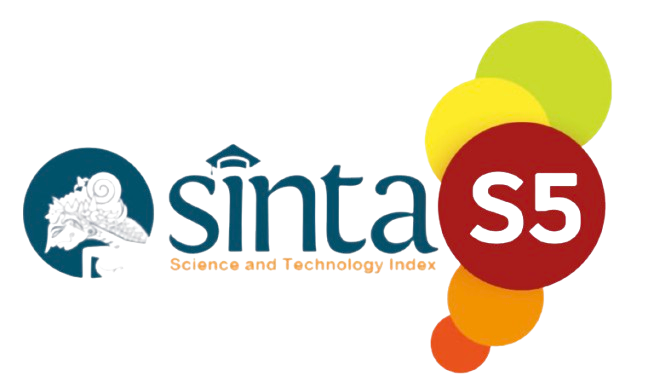Evaluating the Impact of Diverse Writing Practices on EFL Learners’ Proficiency and Writing Anxiety
DOI:
https://doi.org/10.52217/ijlhe.v8i2.1938Keywords:
Writing, EFL Learners, Proficiency, Writing AnxietyAbstract
This study examines how varied writing practices influence the writing performance and emotional responses of English as a Foreign Language (EFL) learners. Given that writing is widely regarded as one of the most demanding language skills, particularly in foreign language contexts, the research focuses on the integration of project-based learning, dialogue journals, automated writing evaluation (AWE), and self-regulated learning (SRL). The aim is to assess their effects on key aspects of writing: grammar, vocabulary, content, coherence, text length, and writing anxiety. Employing an explanatory sequential mixed methods design, the study involved 20 B2-level EFL students, equally assigned to experimental and control groups. Over an eight-week period, both groups completed structured weekly writing tasks, but the experimental group received supplementary instruction incorporating the four targeted writing strategies. A holistic scoring rubric was used to assess writing performance, and focus group interviews were conducted to capture learners’ perceptions. Quantitative analysis revealed that the experimental group demonstrated statistically significant improvement in grammar and vocabulary, with no notable gender differences. Thematic analysis of the qualitative data yielded two main themes: (1) challenges in the writing process, such as idea generation and coherence, and (2) increased motivation and heightened grammar awareness. Students reported that despite initial difficulties—especially related to translation and coherence—the implemented practices enhanced their motivation and confidence. These findings highlight the pedagogical value of integrating structured, varied writing activities into EFL instruction. The study concludes by recommending broader adoption of such practices to promote both linguistic competence and affective growth in language learners.
References
Al-Jarrah, T. M., Mansor, N., & Rashid, R. A. (2015). The effects of the metacognitive writing strategy on Jordanian EFL learners’ writing performance. International Journal of English Linguistics, 5(1), 111–126. https://doi.org/10.5539/ijel.v5n1p111
Fitriati, S. W., Fauziati, E., & Setiawan, B. (2023). Self-regulated learning in EFL academic writing: A mixed-method study. Studies in English Language and Education, 11(1), 145–160. https://doi.org/10.24815/siele.v11i1.27695
Han, Y., Chen, J., & Wang, W. (2023). Exploring the role of ChatGPT in EFL writing instruction: Potentials and challenges. arXiv preprint arXiv:2305.11583. https://arxiv.org/abs/2305.11583
Hastomo, T., Sari, A. S., Widiati, U., Ivone, F. M., Zen, E. L., & Andianto, A. (2025). Exploring EFL teachers’ strategies in employing AI chatbots in writing instruction to enhance student engagement. World Journal of English Language, 15(7), 93–102. https://doi.org/10.5430/wjel.v15n7p93
Irawati, L., Fauziati, E., & Santosa, R. (2022). Developing writing skills of EFL students through multidimensional teaching approaches. Journal of Language and Instruction, 2(3), 45–58. https://jlis.iicet.org/index.php/jlis/article/view/22
Johnson, M., & Cheng, L. (2019). Exploring the potential of dialogue journals in L2 writing: A case study of Chinese EFL learners. TESOL Journal, 10(2), e00389. https://doi.org/10.1002/tesj.389
Li, H., & Cai, J. (2023). The impact of writing anxiety on EFL learners and effective teaching strategies to overcome it. Clausius Scientific Press, 7(2), 22–31. https://www.clausiuspress.com/article/10509.html
Mirhosseini, S. A. (2009). Multiple voices of dialogue journal writing: A critical study of EFL students’ writing. Language Issues, 1(1), 67–84.
Nückles, M., Hübner, S., & Renkl, A. (2020). Enhancing writing skills through reflective journal tasks: A meta-analytic review. Journal of Educational Psychology, 112(4), 683–702. https://doi.org/10.1037/edu0000391
Pariyanto, E., & Tungka, D. W. (2024). Enhancing writing skills of EFL learners through automated feedback: An empirical investigation. ResearchGate Preprint. https://www.researchgate.net/publication/378919898
Selvaraj, A. M., & Aziz, A. A. (2019). The effects of metacognitive strategy instruction on the writing performance of EFL students. International Journal of Academic Research in Business and Social Sciences, 9(2), 620–635. https://doi.org/10.6007/IJARBSS/v9-i2/5623
Xu, Y. (2021). Self-regulated learning strategies in EFL writing instruction: A review of empirical studies. Asian-Pacific Journal of Second and Foreign Language Education, 6(1), 1–14. https://doi.org/10.1186/s40862-021-00108-y
Zhang, J., & Sinha Roy, A. (2022). Exploring the motivation of EFL learners in writing classrooms: Implications for practice. Asian-Pacific Journal of Second and Foreign Language Education, 7(1), 45–58. https://doi.org/10.1186/s40862-022-00154-2
Zhang, J., Tan, L., & Sinha Roy, A. (2022). A systematic review of interventions to improve writing among English learners: A global perspective. International Journal of Learning, Teaching and Educational Research, 21(8), 171–188. https://doi.org/10.26803/ijlter.21.8.10














